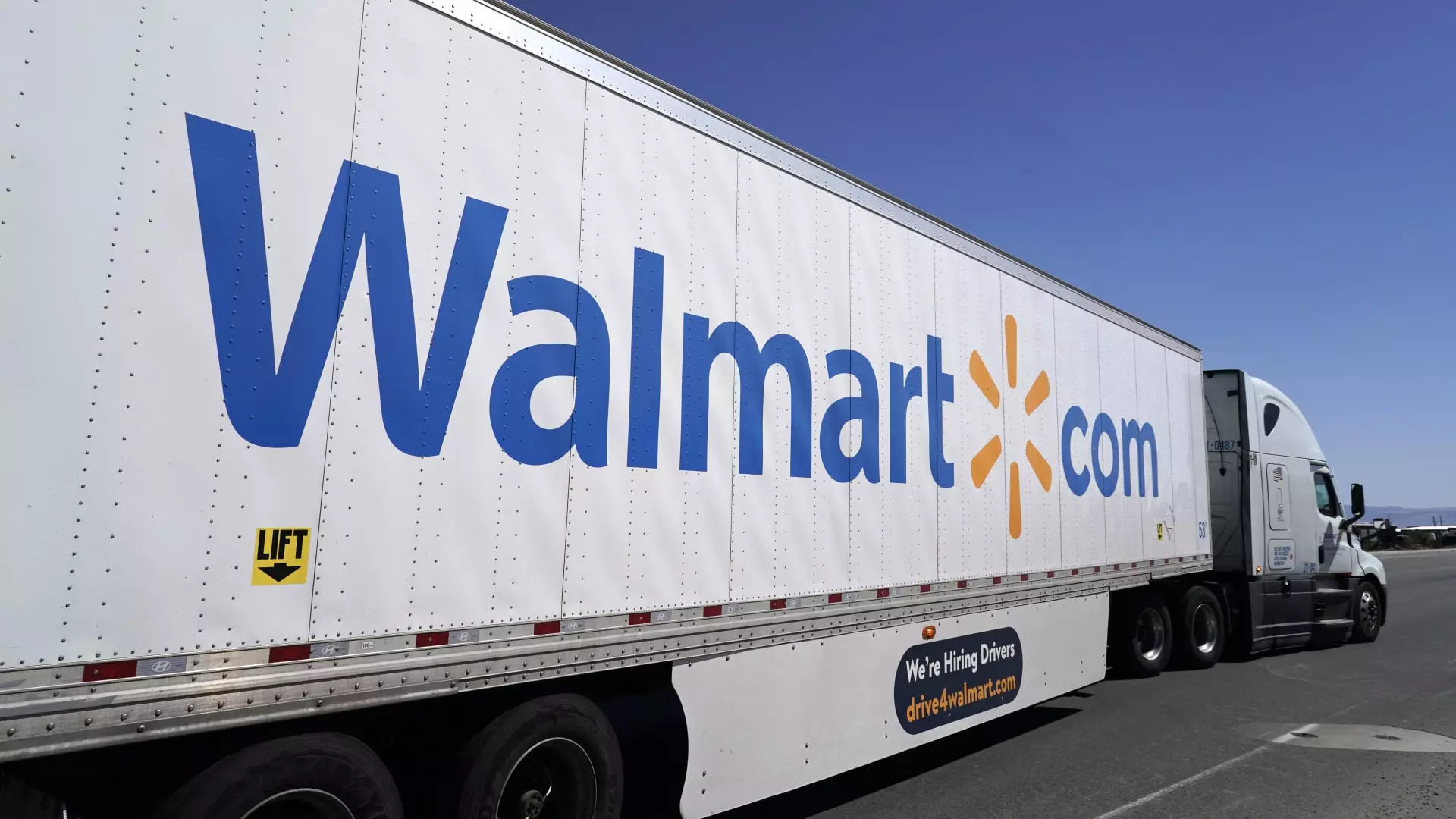The recent legal actions initiated by the Consumer Financial Protection Bureau (CFPB) against Walmart and Branch Messenger have brought to light serious allegations concerning worker payment systems and account management. This situation raises numerous questions about the ethical responsibilities of major corporations in the gig economy and their treatment of employees.
The CFPB’s complaint, filed on a Monday, accuses both Walmart and Branch Messenger of coercing delivery drivers into using subpar deposit accounts, which are alleged to be fraught with high fees and poorly managed. More specifically, it appears that drivers associated with Walmart’s Spark Driver Program were not just misled but were outright forced to accept these accounts to receive their earnings. This breach of workers’ rights suggests a disturbing trend in how gig employment is structured, as major companies seemingly prioritize profit over fair treatment.
Director Rohit Chopra’s statements underscore the importance of protecting workers from exploitation, emphasizing that financial accounts used for salary disbursement should not be detrimental to the earners. The lawsuit claims that more than one million drivers had their earnings deposited into these accounts without providing the drivers with the appropriate consent or understanding of the terms—essentially forcing them into a financial system that undermines their earnings.
The complaint paints a troubling picture of how Walmart allegedly misrepresented the necessity of Branch accounts to its workers. Drivers reportedly faced threats of termination if they opted out of using these accounts. Such coercive practices not only violate principles of fair labor but also illustrate a broader disregard for worker autonomy. Combined with claims that drivers were not properly informed about when they could access their wages, this raises significant concerns about transparency and consent in labor relations.
Additionally, the report alleges that drivers incurred significant fees—over $10 million in “junk fees”—due to delays and hurdles in accessing their funds. This monetary loss not only diminishes the drivers’ earnings but also damages trust in the systems meant to support them. The notion of gig workers having to navigate a labyrinth of fees and penalties merely to access their pay is indicative of deeper systemic flaws within gig work platforms reliant on third-party financial services.
In response to the CFPB’s allegations, Walmart has strongly disputed the validity of the lawsuit, labeling it as riddled with inaccuracies. The company’s statement asserts that they were not given a fair opportunity to defend themselves during the CFPB’s investigation. This denial of wrongdoing is not uncommon among large corporations facing financial misconduct claims, as they often frame the accusations as exaggerated or misinterpreted.
Branch Messenger, likewise, contested the CFPB’s claims, alleging that the bureau had intentionally omitted critical information. This mutual repudiation of the CFPB’s lawsuit highlights the defensive posture companies often adopt when faced with potential damage to their reputations and operational practices. Both organizations’ responses suggest a significant disconnect between regulatory bodies and the corporations they scrutinize, raising crucial considerations about accountability in the gig economy.
This lawsuit is part of a larger trend where financial institutions and corporate employers are increasingly scrutinized over their handling of worker accounts. The CFPB has taken action against several entities in recent years, including lawsuits against banks for mishandling federal benefits programs and other allegations of consumer exploitation. The current landscape suggests that regulatory bodies are beginning to hold corporations accountable for their financial practices, especially concerning gig economy workers who may lack the same protections afforded to traditional employees.
The allegations against Walmart and Branch Messenger serve as a catalyst for broader discussions about labor rights in the gig economy. As more workers turn to gig platforms for employment, it becomes crucial to advocate for clear regulations that protect workers from coercive practices and financial mismanagement. It remains to be seen how this lawsuit will unfold and whether it will result in improved protections for gig economy workers across the board.
The allegations against Walmart and Branch Messenger highlight an urgent need for transparency, fairness, and worker empowerment in the rapidly evolving landscape of gig employment. As these legal battles progress, they may pave the way for more significant reforms and a reevaluation of how workers are treated in the gig economy.

